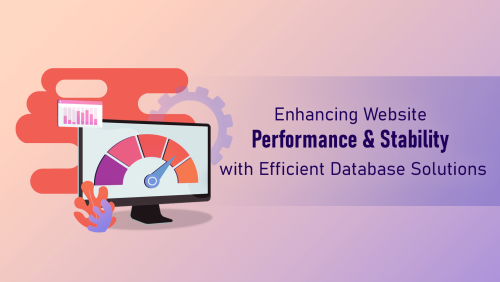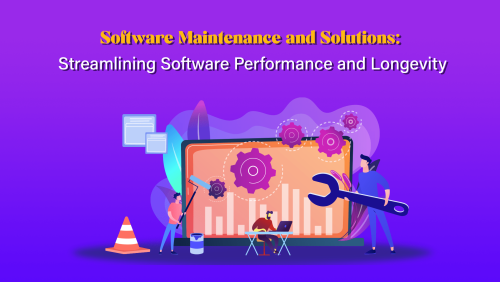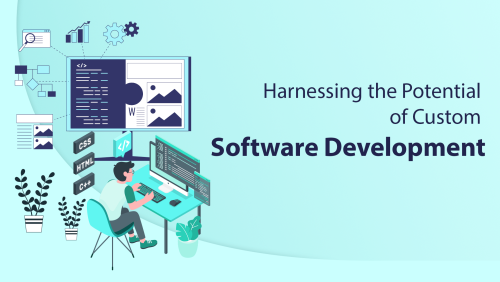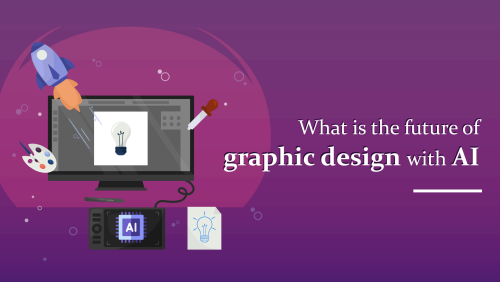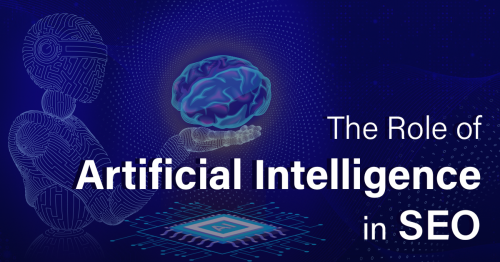
The Role of Artificial Intelligence in SEO
Artificial intelligence (AI) has swiftly revolutionized various sectors, and search engine optimization (SEO) is undoubtedly one of them. AI-powered technologies have revolutionized the way websites are ranked, analyzed, and optimized for search engines. In this article, we will explore the significant role that AI plays in SEO and how it has reshaped the landscape of online visibility and search engine rankings. From content creation and optimization to user experience and data analysis, AI has become a powerful tool that assists SEO professionals in achieving better results. Let's delve into the impact of AI on SEO practices and the benefits it brings to website owners and marketers.
What are the advantages of AI in SEO?
AI offers several advantages in the field of SEO, revolutionizing traditional practices and providing numerous benefits for website owners and marketers. Here are some key advantages of AI in SEO:
Enhanced Efficiency: AI-powered tools and algorithms automate repetitive tasks, allowing SEO professionals to save time and effort. Tasks such as keyword research, content optimization, and data analysis can be performed more efficiently and accurately with AI, enabling professionals to focus on strategic aspects of SEO.
Data Analysis and Insights: AI can process and analyze vast amounts of data at a faster rate than humans. This enables SEO professionals to gain valuable insights and make data-driven decisions. AI algorithms can identify patterns, trends, and correlations within data sets, helping in identifying optimization opportunities and refining SEO strategies.
Personalized Content Creation: AI technologies can analyze user behavior, preferences, and search patterns to generate personalized content. By understanding user intent and interests, AI-powered tools assist in creating relevant and engaging content that resonates with the target audience, leading to improved user satisfaction and increased organic traffic.
Improved User Experience: AI-driven chatbots and virtual assistants enhance user experience by providing instant support and personalized recommendations. These AI-powered assistants can assist users throughout their journey on a website, answering queries, and guiding them towards relevant information. This improves user satisfaction, reduces bounce rates, and increases engagement, all of which contribute to better search engine rankings.
Advanced Keyword Research: AI-powered tools can analyze vast amounts of keyword data, search trends, and user intent to recommend the most relevant and high-performing keywords. This assists in optimizing content for search engines and targeting the right audience, driving organic traffic and improving visibility.
Competitor Analysis: AI algorithms can analyze competitor data, including backlink profiles, keyword strategies, and content performance. This helps SEO professionals gain insights into competitor tactics and identify opportunities to outperform them. By understanding the competitive landscape, businesses can refine their strategies and gain a competitive edge.
Continuous Learning and Adaptation: AI algorithms can continuously learn and adapt based on user behavior and search engine updates. This allows for real-time adjustments to SEO strategies, ensuring websites remain optimized and aligned with evolving search engine algorithms.
In summary, AI in SEO brings efficiency, data-driven insights, personalized content, improved user experience, advanced keyword research, competitor analysis, and adaptability. Leveraging AI technologies empowers SEO professionals to achieve better search engine rankings, increased organic traffic, and improved overall performance.
How will AI impact SEO?
AI is set to have a profound impact on SEO, transforming the way websites are optimized, ranked, and experienced by users. Here are some key ways in which AI will impact SEO:
Improved Search Results: AI-powered algorithms, such as Google's RankBrain, are becoming increasingly sophisticated in understanding user intent and delivering relevant search results. AI analyzes vast amounts of data to interpret search queries and match them with the most appropriate content. This leads to more accurate search results and better user satisfaction.
Enhanced Content Creation and Optimization: AI tools assist in content creation and optimization by analyzing user behavior, search patterns, and preferences. AI algorithms can recommend high-performing keywords, suggest improvements to existing content, and generate meta tags and other on-page elements. This helps websites produce targeted, engaging content that aligns with user intent and enhances search engine visibility.
Voice Search Optimization: With the rise of voice-activated devices and virtual assistants, AI plays a crucial role in voice search optimization. Voice search queries are often conversational and longer, requiring a different approach to keyword targeting. AI-powered tools can analyze and understand the natural language used in voice queries, helping websites optimize their content for voice search and capture valuable voice-driven traffic.
Personalized User Experiences: AI-driven technologies, such as chatbots and recommendation engines, provide personalized user experiences. By analyzing user behavior and preferences, AI can offer tailored recommendations, answer queries, and guide users through their journey on a website. This leads to improved user satisfaction, increased engagement, and ultimately, better search engine rankings.
Advanced-Data Analysis and Insights: AI enables the efficient processing and analysis of large data sets, providing valuable insights for SEO professionals. Machine learning algorithms can identify patterns, trends, and correlations within data, helping to refine SEO strategies, optimize marketing campaigns, and make data-driven decisions. AI's data analysis capabilities allow for more precise targeting, improved conversion rates, and better overall performance.
Mobile-First Indexing: As mobile usage continues to rise, AI assists in optimizing websites for mobile-first indexing. AI algorithms analyze mobile responsiveness, page load times, and other mobile-specific factors to ensure websites offer a seamless mobile browsing experience. Websites that are optimized for mobile perform better in search engine rankings, as search engines prioritize mobile-friendly sites.
Evolving SEO Strategies: AI's constant learning and adaptation capabilities require SEO strategies to evolve alongside it. SEO professionals need to stay updated with AI advancements and algorithms to optimize websites effectively. This includes understanding AI-driven ranking factors, adapting to voice search trends, and leveraging AI-powered tools for data analysis and content optimization.
In conclusion, AI is revolutionizing SEO by improving search results, enabling personalized user experiences, optimizing for voice search, providing advanced data analysis, and necessitating the evolution of SEO strategies. Embracing AI technologies and techniques will be crucial for businesses and website owners to stay competitive and achieve optimal search engine visibility.

Why is artificial influencing important in SEO?
Artificial intelligence's influence on SEO is crucial for several reasons. Here are the key reasons why AI is important in the field of SEO:
Efficient Data Analysis: AI-powered algorithms can process and analyze large volumes of data in a fraction of the time it would take for humans. This enables SEO professionals to gain valuable insights and make data-driven decisions more efficiently. AI's ability to analyze complex data sets allows for a deeper understanding of user behavior, search patterns, and trends, leading to more effective SEO strategies.
Enhanced User Experience: AI technologies, such as chatbots and virtual assistants, improve user experience by providing instant support and personalized recommendations. These AI-driven assistants can engage with users, answer queries, and guide them through websites, resulting in improved user satisfaction and increased engagement. Positive user experiences contribute to better search engine rankings and increased organic traffic.
Accurate Targeting: AI-powered tools can analyze vast amounts of data to identify the most relevant and high-performing keywords for SEO campaigns. By understanding user intent and search trends, AI helps SEO professionals optimize their content and target the right audience. Accurate targeting improves the visibility of websites in search engine results pages (SERPs) and drives organic traffic.
Content Optimization: AI algorithms assist in content optimization by analyzing existing content and suggesting improvements. These algorithms can identify areas where content is lacking relevance, readability, or comprehensiveness and recommend specific changes to enhance its SEO value. AI-powered tools also generate meta tags, headings, and other on-page elements that contribute to better search engine rankings.
Adaptability to Algorithm Changes: Search engine algorithms are continuously evolving, and AI helps SEO professionals stay ahead of these changes. AI algorithms adapt and learn from new updates, allowing for real-time adjustments to SEO strategies. This adaptability ensures that websites remain optimized and aligned with evolving search engine algorithms.
Voice Search Optimization: The rise of voice-activated devices and virtual assistants has made voice search optimization critical in SEO. AI-powered tools can analyze and understand the natural language used in voice queries, helping websites optimize their content accordingly. By optimizing for voice search, websites can capture valuable voice-driven traffic and remain competitive in the evolving search landscape.
Competitive Advantage: Embracing AI in SEO provides businesses with a competitive edge. AI-powered tools enable SEO professionals to gain deeper insights into competitor strategies, analyze backlink profiles, and identify opportunities to outperform competitors. By leveraging AI technologies, businesses can refine their SEO strategies and stay ahead in the ever-changing digital landscape.
In summary, artificial intelligence's influence in SEO is important for efficient data analysis, enhanced user experience, accurate targeting, content optimization, adaptability to algorithm changes, voice search optimization, and gaining a competitive advantage. Incorporating AI-powered tools and strategies is essential for achieving optimal search engine visibility, increasing organic traffic, and staying competitive in the digital landscape.
AI-Driven Content Creation and Optimization
One of the key areas where AI has made a significant impact on SEO is content creation and optimization. AI-powered algorithms and tools can analyze vast amounts of data to understand user behavior, search patterns, and preferences. This enables content creators and SEO professionals to develop highly targeted and engaging content that resonates with their target audience.
AI-driven content optimization tools can also assist in keyword research and selection, helping website owners identify the most relevant and high-performing keywords. These tools can analyze search trends, competition, and user intent to recommend the best keywords to target to maximize visibility and organic traffic.
Furthermore, AI algorithms can analyze existing content on a website and provide suggestions for improvements. They can identify areas where content is lacking in relevance, readability, or comprehensiveness and recommend specific changes to enhance its SEO value. AI-powered tools can also help in generating meta tags, headings, and other on-page elements that contribute to better search engine rankings.
Enhancing User Experience with AI :
User experience (UX) is a critical factor in SEO success, as search engines prioritize websites that offer a seamless and satisfying browsing experience to users. AI technologies have played a significant role in improving user experience and website performance.
AI-powered chatbots and virtual assistants can enhance customer support and engagement by providing instant responses to queries and assisting users throughout their journey on a website. This not only improves user satisfaction but also reduces bounce rates and increases dwell time, both of which are positive signals for search engine algorithms.
Additionally, AI algorithms can analyze user behavior and engagement metrics to provide insights into website performance. This data can be used to identify areas where user experience can be optimized, such as page load times, mobile responsiveness, and navigation structure. By addressing these issues, websites can provide a smoother and more enjoyable browsing experience, leading to improved search engine rankings.
AI for Data Analysis and Insights :
AI-powered tools have greatly enhanced the analysis of vast amounts of data in the field of SEO. Machine learning algorithms can process and interpret large datasets more efficiently than manual analysis, enabling SEO professionals to gain valuable insights and make data-driven decisions.
AI algorithms can analyze website traffic, user engagement, conversion rates, and other performance metrics to identify patterns and trends. This information can be used to optimize marketing strategies, identify areas for improvement, and make informed decisions about content creation and targeting.
Furthermore, AI-powered tools can monitor and analyze competitor data, helping website owners stay ahead of their competition. By analyzing competitor strategies, backlink profiles, and keyword targeting, SEO professionals can develop more effective strategies to outrank their competitors and increase organic visibility.
Artificial intelligence has become an indispensable tool in the world of SEO. From content creation and optimization to enhancing user experience and data analysis, AI-powered technologies have transformed the way websites are ranked and optimized for search engines. By leveraging AI-driven tools and algorithms, SEO professionals can gain valuable insights, develop targeted content, and improve user experience,
Tag: Artificial Intelligence, SEO Optimization, Digital Marketing, Website Performance, SEO Strategies, Advanced AlgorithmsIntelligent Automation, SEO Techniques, Evolving SEO Trends, AI Impact on SEO, SEO Revolution, SEO Best Practices, Future of SEO, SEO Automation, Website Visibility, AI-powered SEO, SEO Analysis, SEO Tools, Search Engine Rankings, SEO Success, SEO Insights, SEO Growth Hacks, SEO Trends, SEO




